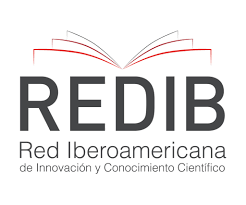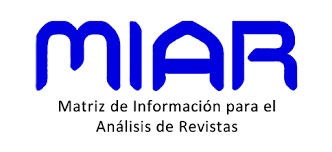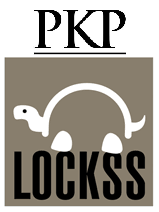Facing Exclusion and Digital Divide Through a Humane use of ICT
DOI:
https://doi.org/10.51743/cpe.372Keywords:
digital divide, ethics of technology, humanization, information technology, social inclusionAbstract
Digital technologies offer universal and instant access to information and communication, thereby increasing opportunities for learning, innovation, educational inclusion and social participation. However, in the last decade, in a globalized world, profound differences in access to and use of ICT have become more pronounced. At the same time, there is a risk that ICT may be emptied of content and values and fail to respect the rights and dignity of individuals. This article aims to respond, through a bibliographic review of sources, both from educational and official literature, to the challenges posed by the rapid development of digital technologies and by the meaning and ethical implications of innovation and educational technological development in the context of the digital divide. The results found detect a double aspect of positive and negative uses of ICT and point to education as a key element to promote training in the critical use of digital technologies. It is also necessary to promote ethical commitment in digital competence, allowing a more humane and inclusive use of technological media.
Downloads
Global Statistics ℹ️
|
472
Views
|
269
Downloads
|
|
741
Total
|
|
References
Argandoña, A. (2019). La ética y las tecnologías digitales. European Business Ethics Network.
https://www.eben-spain.org/la-etica-y-las-tecnologias-digitales
Asociación para el Progreso de las Comunicaciones (APC) (2006). Carta sobre derechos en internet.
http://www.apc.org/es/system/files/APC_charter_ES.pdf
Baker-Brunnbauer, J. (2020). Management perspective of ethics in artificial intelligence. Recuperado de https://rdcu.be/ccrpr DOI: https://doi.org/10.1007/s43681-020-00022-3
Cabero Almenara, J., y Ruiz-Palmero, J. (2017). Las Tecnologías de la Información y Comunicación para la inclusión: reformulando la brecha digital. IJERI: International Journal of Educational Research and Innovation, (9), pp. 16-30. Disponible: https://www.upo.es/revistas/index.php/IJERI/article/view/2665
Coeckelbergh, M. (2021). Ética de la Inteligencia Artificial. Cátedra.
Comisión Europea (2017). Consulta pública sobre noticias falsas y desinformación en línea. Comisión Europea, Consultas, 13 noviembre. https://goo.gl/Vj5DS2
Comisión Europea (2019). Comunicación de la Comisión al Parlamento Europeo, al Comité Económico y Social Europeo y al Comité de las Regiones. Generar confianza en la inteligencia artificial centrada en el ser humano. Document 52019DC0168f: https://eur-lex.europa.eu/legal content/ES/TXT/?uri=CELEX:52019DC0168
Comisión Europea (2019 a). Directrices éticas para una IA fiable. Grupo de expertos de alto nivel sobre inteligencia artificial. https://op.europa.eu/es/publication-detail/-/publication/d3988569-0434-11ea-8c1f-01aa75ed71a1
Comisión Europea (2021). Plan de acción de educación digital. https://education.ec.europa.eu/es/plan-de-accion-de-educacion-digital-2021-2027
Comisión Europea (2021). Nuevas normas sobre la IA. https://www.search-new.com/intl/searchq=QANDA/21/1683&srchid=140ef6069e1f494befad0a6f51f6eada&source=2f04e477311f49f99205e1ae6a45fe09
Dravet, F. y Castro, G. (2019). Aprendizaje, medios digitales y afecto: Propuestas para un nuevo paradigma en la educación superior. Interface (Botucatu), 23, e180321. http://dx.doi.org/10.1590/interface DOI: https://doi.org/10.1590/interface.180321
Davies, J. y Merchant, G. (2009). Web 2.0 for schools. Learning and social participation. Peter Lang Publishing.
Dynamic coalition on internet rights and principles (2011). Carta de Derechos Humanos y Principios en Internet. Disponible: http://diadeinternet.org/pdfs/Internet_Derechos_Principios.pdf.
Espiñeira, E., Mosteiro, M., Muñoz, J., y Porto, A. (2020). La honestidad académica como criterio de evaluación de los trabajos del alumnado universitario. RELIEVE, 26. https://doi.org/10.7203/relieve.26.1.17097 DOI: https://doi.org/10.7203/relieve.26.1.17097
Espiñeira, E., Muñoz, J., Gerpe, E., y Castro, M. (2021). Ciberplagio como soporte digital en la realización de trabajos académicos. Comunicar, 68, pp. 119-128. https://doi.org/10.3916/C68-2021-10 DOI: https://doi.org/10.3916/C68-2021-10
Estrada, B. y Pinto, A. M. (2021). Análisis comparativo de modelos educativos para la educación superior virtual y sostenible. Entramado, 17(1), pp. 168-184. ISSN: 1900-3803. Disponible: https://www.redalyc.org/articulo.oa?id=265467418011 DOI: https://doi.org/10.18041/1900-3803/entramado.1.6131
European Commission, y Independent High Level Expert Group On AI (20 de December de 2018). Ethics Guidelines for Trustworthy AI. R. Disponible: https://www.aepd.es/sites/default/files/2019-12/ai-ethics-guidelines.pdf
European Commission (20 December 2020). White Paper. On Artificial Intelligence-A European approach to excellence and trust. https://ec.europa.eu/info/sites/info/files/commission-white-paper-artificial-intelligence-feb2020_en.pdf
Fernández Fernández, J.L. (2021). Hacia el humanismo digital desde un denominador común para la ciber-ética y la ética de la inteligencia artificial. Disputatio. Philosophical Research Bulletin, 10 (17), pp. 107-130. https://doi.org/10.5281/zenodo.5136247
Fernández Río, J., López-Aguado, M., Pérez-Pueyo, A., Hortigüela-Alcalá, D. y Manso-Ayuso, J. (2022). La brecha digital destapada por la pandemia del coronavirus: Una investigación sobre profesorado y familias. Revista Complutense de Educación, 33 (2), pp. 351-360. https://doi.org/10.5209/rced.74389 DOI: https://doi.org/10.5209/rced.74389
Ferrari, A. (2013). DIGCOMP: A Framework for Developing and Understanding Digital Competence in Europe. Publications Office of the European Union. https://doi.org/10.2788/52966
Flores, C. y Roig, R. (2016). Diseño y validación de una escala de autoevaluación de competencias digitales para estudiantes de Pedagogía. Pixel-Bit. Revista de Medios y Educación, (48), pp. 209-224. https://www.redalyc.org/articulo.oa?id=36843409015 DOI: https://doi.org/10.12795/pixelbit.2016.i48.14
Gil, M., Lezcano, F., y Casado, R. (2016). Principios éticos en investigación educativa con PLE aplicados a una experiencia internacional. Edutec. Revista Electrónica De Tecnología Educativa, (57), a340. https://doi.org/10.21556/edutec.2016.57.747 DOI: https://doi.org/10.21556/edutec.2016.57.747
Gelman, R.B. (1997). Draft Proposal: Declaration of Human Rights in Cyberspace. http://www.be-in.com/10/rightsdec.html
Gutiérrez, F. M. y Leguizamón, M. C. (2021). Alfabetización Informacional: una vía de acceso a la información confiable. Historia de la Educación Latinoamericana, 23 (36) DOI: https://doi.org/10.19053/01227238.11620
Gobierno de España (diciembre de 2020). ENIA. Estrategia Nacional de Inteligencia Artificial. Versión 1.0.
https://portal.mineco.gob.es/RecursosNoticia/mineco/prensa/noticias/202 0/201202_np_ENIAv.pdf
Hamelink, C.J. (2003). Human Rights for the Information Society. En B. Girard; S. Ó Siochrú, S. (Eds.). Communicating in the Information Society. UNRISD.
Heredia, D. (2018). ¿Qué constituye al ser humano como ser humano? Un intento de tomar parte en la búsqueda a una pregunta básica del quehacer filosófico. En: Humanos e inhumanos. Qué nos asemeja y qué nos diferencia de las restantes especies animales. Naturaleza y Libertad. Revista de estudios interdisciplinares, 10 (volumen monográfico), pp. 143-154. DOI: https://doi.org/10.24310/nyl.v10i3.3664
Hernández, T. (2018). Ética y maximalismo digital: necesidad del pensamiento crítico sobre las tecnologías. Anuario ThinkEPI, 12, 352-355. https://doi.org/10.3145/thinkepi.2018.59 DOI: https://doi.org/10.3145/thinkepi.2018.59
James, N. y Busher, H. (2007). Ethical issues in online educational research: Protecting privacy, establishing authenticity in email interviewing. International Journal of Research and Method in Education, 30 (1), pp. 101-113. DOI: https://doi.org/10.1080/17437270701207868
Jobin, A., Ienca, M., y Vayena, E. (2019). The global landscape of AI ethics guidelines. Natura Machine Intelligence 1 (9), pp. 389-399. DOI: https://doi.org/10.1038/s42256-019-0088-2
Kampylis, P., Punie, Y. y Devine, J. (2015). Promoción de un Aprendizaje Eficaz en la Era Digital - Un Marco Europeo para Organizaciones Educativas Digitalmente Competentes, EUR 27599. https://doi.org/10.2791/54070
Kaplan, A. y Haenlein, M. (2020). Rulers of the world, unite! The challenges and opportunities of artificial intelligence. Business Horizons, 63, pp. 37-50. DOI: https://doi.org/10.1016/j.bushor.2019.09.003
LOMCE. Ley Orgánica 8/2013, de 9 de diciembre, para la mejora de la calidad educativa. Boletín Oficial del Estado, 295, de 10 de diciembre de 2013, pp. 97858-97921. https://www.boe.es/eli/es/lo/2013/12/09/8
LOMLOE. Ley Orgánica 3/2020, de 29 de diciembre, por la que se modifica la Ley Orgánica 2/2006, de 3 de mayo, de Educación. «BOE» núm. 340, de 30 de diciembre de 2020, pp. 122868-122953. https://www.boe.es/eli/es/lo/2020/12/29/3
López, M. (2019). Del hombre-máquina a la máquina-hombre. Materialismo, mecanicismo y transhumanismo. En: Inteligencia Artificial y Antropología Filosófica. ¿Es posible transferir la mente humana a un soporte no biológico?, editado por Teodoro Sánchez-Ávila Sánchez- Migallón. Naturaleza y Libertad. Revista de estudios interdisciplinares, 12 (volumen monográfico), pp. 179-190.
Martin, K., Shilton, K. y Smith, J. (2019). Business and the Ethical Implications of Technology: Introduction to the Symposium. Journal of Business Ethics, 160, pp. 307-317. DOI: https://doi.org/10.1007/s10551-019-04213-9
Martínez, R. (2018). Transformación digital y diseño orientado a la privacidad en la Universidad. RUIDERAe: Revista de Unidades de Información, pp. 13-25. DOI: https://doi.org/10.21723/riaee.v13.n2.2018.11475
Mittelstadt, B. D., Allo, P., Taddeo, M., Wachter, S., y Floridi, L. (2016). The ethics of algorithms: Mapping the debate. Big Data and Society, 3 (2), pp. 1-21. DOI: https://doi.org/10.1177/2053951716679679
Monasterio Astobiza, A. (2017). Ética algorítmica: Implicaciones éticas de una sociedad cada vez más gobernada por algoritmos. Dilemata, 24, pp. 185-217.
Neves, R.M.; Lima, R.M. y Mesquita, D. (2021). Teacher competences for active learning in Engineering Education. Sustainability, 13 (16), 9231. https://doi.org/10.3390/su13169231 DOI: https://doi.org/10.3390/su13169231
Nova, A. (2017). Formación integral en la Educación Superior: Análisis de contenido de discursos políticos. Praxis y Saber, 8 (17), pp. 181-200. https://doi.org/10.19053/22160159 DOI: https://doi.org/10.19053/22160159.v8.n17.2018.7206
Orden ECD/65/2015, de 21 de enero, por la que se describen las relaciones entre las competencias, los contenidos y los criterios de evaluación de la educación primaria, la educación secundaria obligatoria y el bachillerato. «BOE» núm. 25, de 29 de enero de 2015, pp. 6986-7003. https://www.boe.es/eli/es/o/2015/01/21/ecd65
OECD, y FORUM, I. T. (2020). Leveraging digital technology and data for human–centric smart cities. The case of smart mobility. Report for the G20 Digital Economy Task Force. OECD.
Ortega González, D., Acosta Álvarez, C. L., Ortega Cabrera, F. y Díaz Cruz, Y. (2021). Retos de la educación contemporánea ante la virtualización y ubicuidad de los entornos sociales. Revista Conrado, 17(78), pp. 32-39.
Parlamento Europeo (2006). Recomendación 2006/962/CE del Parlamento Europeo y del Consejo, de 18 de diciembre de 2006. https://eur-lex.europa.eu/LexUriServ/LexUriServ.do?uri=OJ:L:2006:394:0010:0018:ES:PDF
Pinto, M. y Leite, C. (2020). Digital technologies in support of students learning in Higher Education. Literature review. Digital Education Review, 37, pp. 343-360. https://doi.org/10.1344/der.2020.37.34 DOI: https://doi.org/10.1344/der.2020.37.343-360
Quiñónez, S.H., Zapata, A. y Canto P.J. (2018). Percepción de profesores sobre la afectividad en los entornos virtuales en una universidad pública del sureste de México. Revista Iberoamericana para la Investigación y el Desarrollo Docente, 9 (17), pp. 195-224. http://dx.doi.org/10.23913/ride.v9i17.378 DOI: https://doi.org/10.23913/ride.v9i17.378
Rather, M. (2002). Strategies for Teaching Internet Ethics. Delta Pi Epsilon Journal, 44, pp. 73-79.
Redecker, C. (2020). Marco Europeo para la Competencia Digital de los Educadores: DigCompEdu. (Trad. Fundación Universia y Ministerio de Educación y Formación Profesional de España). Secretaría General Técnica del Ministerio de Educación y Formación Profesional de España (Original publicado en 2017).
Reche, E., Quintero, B., y Marín, V. (2016). De la competencia informacional al ciberplagio en Educación Primaria. Etic@net, 16(2). https://doi.org/10.30827/eticanet.v16i2.11924 DOI: https://doi.org/10.30827/eticanet.v16i2.11924
Romero, M. y López, M. (2021). Luces, sombras y retos del profesorado en torno a la gamificación apoyada en TIC: Un estudio con maestros en formación. REIFOP Revista Electrónica Interuniversitaria de Formación del Profesorado, 24 (2), pp. 167-179. http://dx.doi.org/10.6018/reifop.470991 DOI: https://doi.org/10.6018/reifop.470991
Ruiz, M. y García, J (2020). Aprendizaje-Servicio en escenarios digitales de aprendizaje: propuesta innovadora en la Educación Superior. RIED. Revista Iberoamericana de Educación a Distancia, 23 (1). http://dx.doi.org/10.5944/ried.23.1.24391 DOI: https://doi.org/10.5944/ried.23.1.24391
Segarra-Saavedra, J., y Martínez-Sala, A.M. (2020). Percepción del plagio y uso de herramientas antiplagio por parte del alumnado universitario. Redes de Investigación e Innovación en Docencia Universitaria, 2020. 409-424. Alicante: Universidad de Alicante, Instituto de Ciencias de la Educación (ICE). https://bit.ly/3ejaOao
Silva, A. N., Albuquerque, M., Bandeira, M.C., Deison, L. y Magalhães, I. (2020). El uso de la metodología activa en el campo de las Ciencias Sociales en Salud: Relato de experiencia de producción audiovisual por los estudiantes. Interface (Botucatu) [online], 24, e190231. http://dx.doi.org/10.1590/interface.190231 DOI: https://doi.org/10.1590/interface.190231
Timmis, S., Broadfoot, P., Sutherland, R., y Oldfield, A. (2016). Rethinking assessment in a digital age: Opportunities, challenges, and risks. British Educational Research Journal, 42(3), pp. 454-476. https://doi.org/10.1002/berj.3215 DOI: https://doi.org/10.1002/berj.3215
Tur, G., Marín, V. y Carpintero, J. (2017). Uso de Twitter en la Educación Superior en España y EE.UU. Comunicar: Revista de investigación en educación en medios, 25 (51), pp. 19-27. http://dx.doi.org/10.3916/C51-2017-02. DOI: https://doi.org/10.3916/C51-2017-02
UNESCO (2011). Alfabetización mediática e informacional: Currículo para profesores. https://unesdoc.unesco.org/ark:/48223/pf0000216099
UNESCO (2019, a). Marco de competencias de los docentes en materia de TIC.
UNESCO (2019) b). Conferencia Mundial para la Inteligencia Artificial: “Principios para la IA: ¿Hacia un enfoque humanista?” https://exteriores.gob.es/RepresentacionesPermanentes/unesco/es/Comunicacion/Noticias/Paginas/Articulos/Conferencia-Mundial-sobre-Inteligencia-Artificial.aspx
UNESCO (2019) c). Debate sobre las nuevas tecnologías y la inteligencia artificial: “Futuros tecnológicos: ¿esperanza o miedo?” https://en.unesco.org/news/unesco-hosts-debate-ethics-new-technologies-and-artificial-intelligence-tech-futures-hope-fear
United Nations (1948). Declaración Universal de los Derechos Humanos. United Nations General Assembly. Disponible: http://www.un.org/es/documents/udhr/
Valverde, J., Fernández, M.R. y Revuelta, F.I. (2013). El bienestar subjetivo ante las buenas prácticas educativas con TIC. Su influencia en profesorado innovador. Educación XX1, 16 (1), pp. 255-280. DOI: https://doi.org/10.5944/educxx1.16.1.726
Zook, M.; Barocas, S.; Boyd, D.; Crawford, K.; Keller, E.; Gangadharan, S.P.; Goodman, A.; Hollander, R.; Koenig, B.; Metcalf, J.; Narayanan, A.; Nelson, A. y Pasquale, F. (2017). Ten simple rules for responsible big data research. PLOS Computational Biology, 13 (3) e1005399. https://doi.org/10.1371/journal.pcbi.1005399 DOI: https://doi.org/10.1371/journal.pcbi.1005399
Downloads
Published
How to Cite
Issue
Section
License
The author reserves the rights (copyright) of the published works, and the journal encourages and allows their reuse, from the preprint. The works are published in the electronic edition of the journal under a license "Creative Commons Attribution / Attribution-NonCommercial 4.0 International Public License - CC BY-NC 4.0", and can be copied, used, disseminated, transmitted and publicly exhibited.
The author / s partially transfer the property rights (copyright) of this work for the printed and online editions, provided that:
- The authorship and original source of its publication (magazine, publisher and URL of the work) is cited.
- Are not used for commercial purposes.
- The existence and specifications of this user license are mentioned.
It also declares to have respected the ethical principles of research and to be free from any conflict of interest.
"C.P.E." encourages the authors and the scientific community to the maximum promotion and dissemination of the works in their final version through:
1) Your list of contacts (emails) and social networks (Facebook, Twitter, LinkedIn ...).
2) Institutional repository of your University and public repositories (Mendeley, Cosis ...).
3) Scientific social networks (ResearchGate, Academia.edu, Kudos ...).
4) Personal or institutional website, blog, etc.
5) Google Scholar, ORCID, ResearchID, ScopusID, Dimensions, PlumX ...
6) Printed copies purchased directly and sent to specialists for reading and subsequent citation if appropriate.




















1.png)
1.png)

1.png)





.png)
.png)

.png)
1.png)
1.png)
